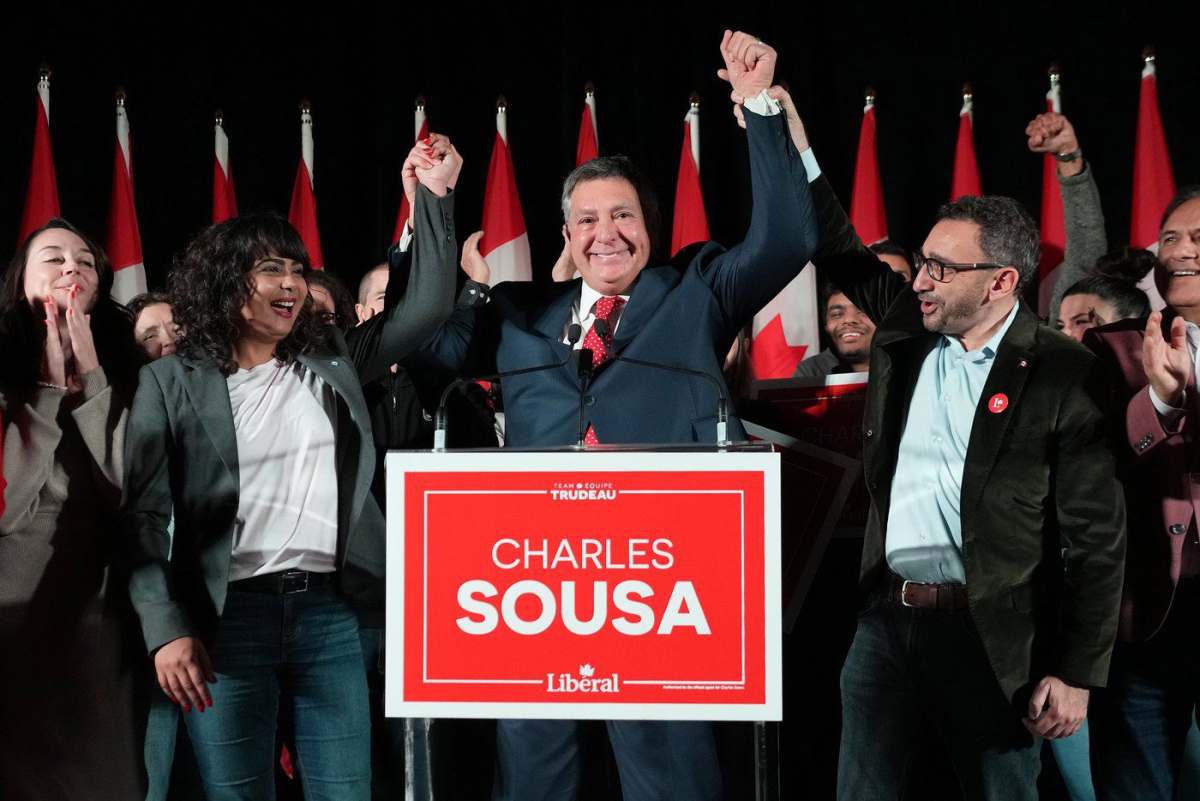Support strong Canadian climate journalism for 2025
A Liberal win in a federal byelection in Ontario before the holidays has some Conservatives feeling a little blue — and a little worried about where the NDP's vote went.
Former provincial cabinet minister Charles Sousa handily won the riding of Mississauga-Lakeshore Monday night in a race that saw just over a quarter of eligible voters cast a ballot.
The Conservatives had been expecting a low voter turnout and tempering expectations for their candidate, local police officer Ron Chhinzer, given Sousa's high profile and roots in the region.
The byelection was the first held since Pierre Poilievre took the reins as party leader after winning its leadership race in a landslide. And it was held in the Greater Toronto Area, a region where the party has struggled to regain ground from the Liberals since losing government in 2015, and which some in the party think is ripe for the picking after more than seven years of Prime Minister Justin Trudeau.
But Poilievre decided to skip campaigning in the riding, with the party sending some of his Conservative MPs instead.
"The Pierre pandemonium that existed during the leadership is going to require a lot more hard work by the party and the broader Conservative team to translate that into success in a general election," said Jamie Ellerton, who managed the campaign of Ontario MP Scott Aitchison in the recent race.
He said if there's one lesson his party should take away from the loss, it's a sense of humility.
Monday's results show that Tories captured just over 37 per cent of the votes, down slightly from how they performed overall under former leader Erin O'Toole during the 2021 election. The Liberals, on the other hand, took just over half the votes, and the NDP saw their share fall to just under five per cent — about half of what it was during the federal vote.
"The NDP is in trouble," said Philippe Fournier, who founded 338Canada and models electoral projections based on polls.
Even though the suburban riding isn't traditionally friendly to the NDP, the result shows the party is not gaining traction with voters, he said.
"To have your vote count cut in half in a year, that's bad news."
It's where those votes went that gave some Conservatives pause on Tuesday, with Fournier suggesting that it appears they were picked up by the Liberal candidate.
Dan Robertson, a former chief strategist for the party's 2021 campaign under O'Toole, said it's an example of a larger issue for the Tories: NDP voters turning to the Liberals to block a Conservative win.
He said the party saw that trend under O'Toole, who had nonetheless tried to usher in a more moderate brand of conservatism. And he said he thinks the problem could worsen under Poilievre.
"I think NDP voters are going to take a look at Poilievre and fly to the Liberals to stop him."
Robertson views the longtime Ottawa-area MP as a "small-c conservative" who would be wise to stick to talking about economic issues. He said Poilievre has a way of pushing Liberal and NDP buttons.
"He triggers progressives," he said.
"They're going to be very keen, NDP voters especially, to set aside misgivings about the Liberals and vote strategically to keep the Conservatives out."
That instinct would also pose a problem for NDP Leader Jagmeet Singh. But on Tuesday, he dismissed the byelection loss as inconsequential.
"One result in one byelection that for three decades has been Liberal is not really going to inform my decision around the future of our movement or our party," he said before question period.
Ellerton said that the state of Singh's party cannot be ignored.
"A weak NDP is a reality, and I think Conservatives cannot be relying on others to screw up to succeed, because that's setting ourselves up for failure."
Despite Singh's assessment, a federal Conservative once proved that the same Mississauga riding could be won by a federal party other than the Liberals.
That was former Conservative prime minister Stephen Harper, who nabbed it for the party when he won his majority back in 2011. The area is also currently held by Ontario Premier Doug Ford's Progressive Conservatives.
The federal Conservatives still see a path to a Poilievre government through other ridings in the seat-rich region around Toronto and Mississauga.
They think Poilievre's tactic of appealing to those who feel the economic anxieties of inflation, and those who don't identify with the status quo, will pay off in other areas, even if Mississauga-Lakeshore is not gettable.
But Fournier warned against writing off the riding. Any future majority government that Poilievre hopes to win, he said, will have to run through seats like the one the Conservatives just lost.
This report by The Canadian Press was first published Dec. 13, 2022.




Comments